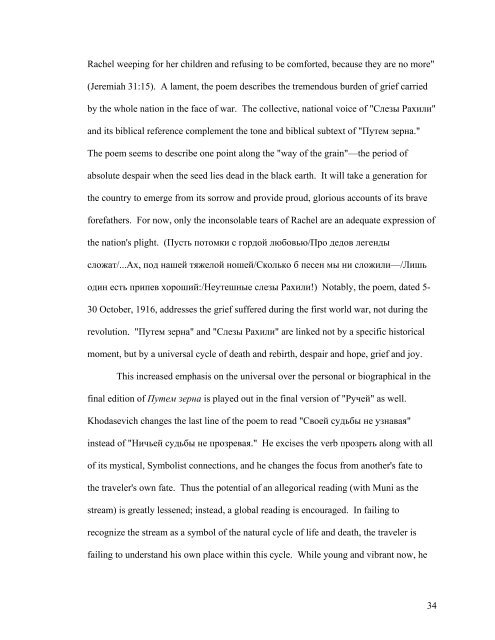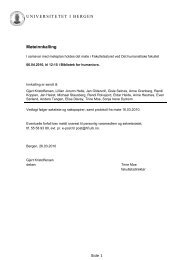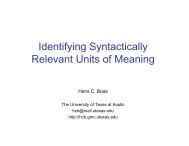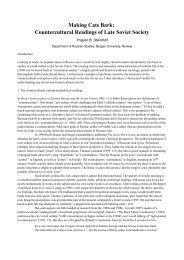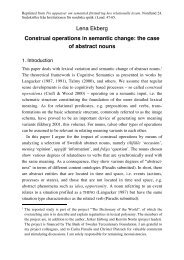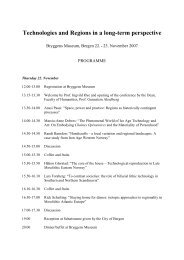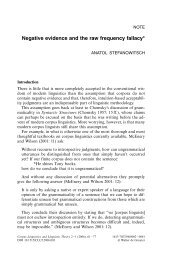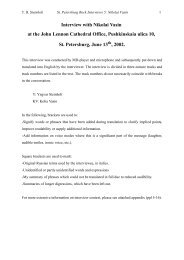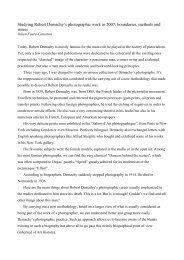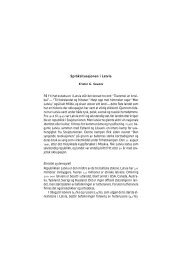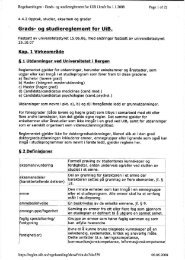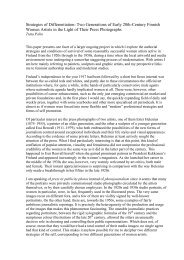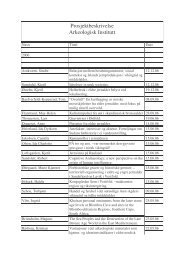THE BOOK OF POEMS IN TWENTIETH-CENTURY ... - TopReferat
THE BOOK OF POEMS IN TWENTIETH-CENTURY ... - TopReferat
THE BOOK OF POEMS IN TWENTIETH-CENTURY ... - TopReferat
Create successful ePaper yourself
Turn your PDF publications into a flip-book with our unique Google optimized e-Paper software.
Rachel weeping for her children and refusing to be comforted, because they are no more"<br />
(Jeremiah 31:15). A lament, the poem describes the tremendous burden of grief carried<br />
by the whole nation in the face of war. The collective, national voice of "Слезы Рахили"<br />
and its biblical reference complement the tone and biblical subtext of "Путем зерна."<br />
The poem seems to describe one point along the "way of the grain"—the period of<br />
absolute despair when the seed lies dead in the black earth. It will take a generation for<br />
the country to emerge from its sorrow and provide proud, glorious accounts of its brave<br />
forefathers. For now, only the inconsolable tears of Rachel are an adequate expression of<br />
the nation's plight. (Пусть потомки с гордой любовью/Про дедов легенды<br />
сложат/...Ах, под нашей тяжелой ношей/Сколько б песен мы ни сложили—/Лишь<br />
один есть припев хороший:/Неутешные слезы Рахили!) Notably, the poem, dated 5-<br />
30 October, 1916, addresses the grief suffered during the first world war, not during the<br />
revolution. "Путем зерна" and "Слезы Рахили" are linked not by a specific historical<br />
moment, but by a universal cycle of death and rebirth, despair and hope, grief and joy.<br />
This increased emphasis on the universal over the personal or biographical in the<br />
final edition of Путем зерна is played out in the final version of "Ручей" as well.<br />
Khodasevich changes the last line of the poem to read "Своей судьбы не узнавая"<br />
instead of "Ничьей судьбы не прозревая." He excises the verb прозреть along with all<br />
of its mystical, Symbolist connections, and he changes the focus from another's fate to<br />
the traveler's own fate. Thus the potential of an allegorical reading (with Muni as the<br />
stream) is greatly lessened; instead, a global reading is encouraged. In failing to<br />
recognize the stream as a symbol of the natural cycle of life and death, the traveler is<br />
failing to understand his own place within this cycle. While young and vibrant now, he<br />
34


